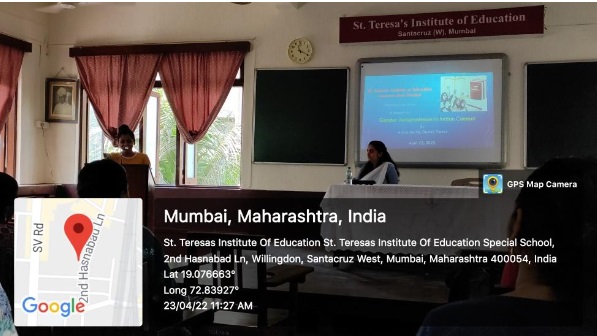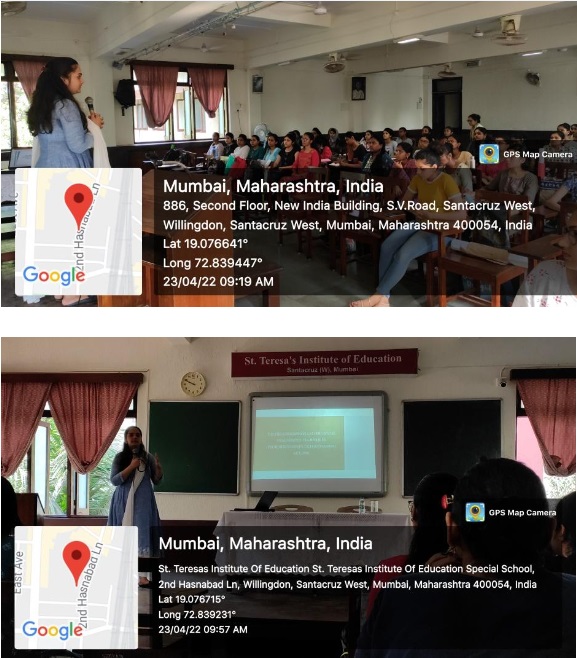
23rd April, 2022
A session on Gender Jurisprudences in Indian context was organized by the management of St. Teresa’s Institute of Education on 23rd April 2022 for the students of F.Y.B.ED. The coordinator for this session was Dr. Reshma Rodrigues and the speaker for this session was Advocate Ms. Damini Thaker.
Ms. Damini began by giving a brief outline of the session wherein she would cover the 3 Acts from Constitution of India on Equality, Right to life and Convention on the rights of children (CRC). She gave in depth knowledge on Article 15- which prohibits Discrimination on the grounds of race, sex, religion, etc and also on Article 15 (3) that empowers the State to make laws for women and children. She talked about Section 375 which deals with Rape, she explained about the types of rape offences depending on their severity. She pointed out the loopholes that can be noticed in the Acts and also the punishments of the offences.
POSCO Act 2012 (Protection of Children from sexual offences) was explained, she briefly mentioned about the after effects of this offence on the victim- Depression,.PSD, anxiety, etc. She explained the steps on how to report an sexual offence to either local police or the special Juvinile Police Unit that handles Children's cases. She informed about the different ways of case proceedings depending on whether the victim is an Adult or a child. The First step towards filing the case is for the Police to record the complaint in writing, then report to the Child welfare Committee and Special court within 24 hours. If a child is the victim extra precaution is taken to safeguard the child at every judicial proceeding.
PCPNDT 1994 (Preconception and prenatal Diagnostic techniques Act) was explained next, the objectives of the Act was to prevent sex selection. Section 3A Prohibition of Sex selection, Section 3 B Prohibition of sale of Ultra sound machines, etc was some of the Laws that was briefed by Ms. Damini.
The PWDV Act (Protection of Women from Domestic Violence) was also explained. The different types of DV - Physical, Verbal, Economic was explained in depth with their definitions and punishments. The different kinds of remuneration given to the victim were also informed.
Many students raised their queries which were promptly answered and explained. She shared her personal experiences of working on cases related to the above mentioned crimes. She also said that every case ruling may vary depending on the circumstances and the amount of evidence present because it is necessary to have Proof beyond reasonable doubt to convict a person. It was a very informative, knowledge packed and fruitful session for the students.

